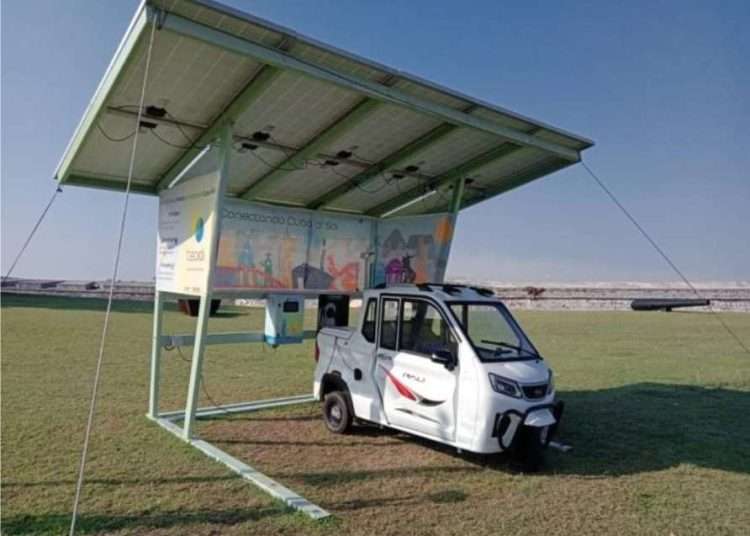Before the end of 2023, the Cuban Ministry of Transportation plans to place photovoltaic solar energy stations to charge electric vehicles in airport, bus and train terminals, through the project named Tecxol.
The idea is for people to use an electric car without using the energy of the National Electro Energy System, currently in crisis due to the obsolescence of its main thermoelectric plants and the scarcity of fuels.
In this context, the Cuban government has been forced to modify the energy matrix. “We cannot continue incorporating electric vehicles if the generation of energy for recharging with the use of renewable sources is not ensured,” Minister of Transportation Eduardo Rodríguez Dávila told Granma newspaper.
Tecxol
The platform is being developed by the European company ElectroAir, manufacturer of solar inverters, and the Defense Information Technology Company (Xetid), responsible for the IT solution that will manage the charging stations throughout the country.
Jorge Yosvani Hernández García, director of Digital Technology at Xedit, told Granma that the first objective is to make it easier for electric vehicle owners to charge outside the home or business.
The specialist indicated that the platform would manage both the generation points with photovoltaic solar energy and the charging stations, which would allow the establishment of a kilowatt-hour bag.
He said that the energy generated will be credited to the user in an account that can be consumed at any of the charging points in the country. This guarantees, in his opinion, that the energy or the kilowatt-hour consumed in the charging stations or in the recharging points for electric vehicles have a backup in renewable energy.
In the future, the deployment of EV stations nationwide will make it easier for EV drivers to charge regardless of where they are, the executive said.
This solution was presented in the TECH2023 space of the 41st edition of the International Tourism Fair in Havana. The event addressed the technologies within the sector, in which the users of electric vehicles — whether they are rented or owners — will have the charge inside the hotels.
For more than a decade, ElectroAir has had a branch in the national territory that sells fully electric vehicles. Its assistant manager in Cuba, Javier Ramos, insisted in 2022 on the change of mentality that electric mobility requires in a narrow and elongated country.
The increase in the circulation of the electric vehicle fleet in Cuba responds to a national strategy for the mitigation of greenhouse gas emissions in transportation, which will gradually modify the energy matrix in the automotive sector.










